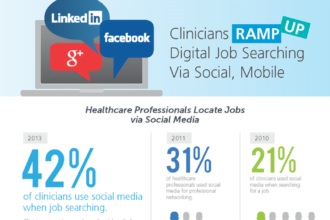Did you get more than a few minutes with your doctor at your last visit? Probably not. Why not? Not enough time.
The primary care physician (PCP) is the most broadly yet deeply focused care giver and as such is the backbone of the healthcare system. But to do this work effectively requires time – time which all too often is not adequately available. Lack of time is a real impediment to the best possible care.
What constitutes primary care and who are the primary care physicians? They are the first responders, the first line of care, and very frequently the patient’s confidant on all matters related to health and often more. The PCP is often the first physician contacted because of the long standing patient – doctor relationship but also because the PCP tends to be more readily available than a specialist who does not know you. The PCP needs to know a broad and deep range of medicine and at the same time needs to know when it is time to consult a specialist. And if you have a chronic illness, the PCP should also ideally coordinate all of the various specialists, tests, imaging and procedures that you might require. It is this coordination of the care over the long term that will mean better care at a lower cost.
The PCP deals with most problems/ illnesses with a broad yet deep expertise and knowledge and so is able to diagnose and treat most common and many not so common diseases and problems, including most chronic illnesses. He or she is well versed in the continuity of care for chronic complex illnesses, is in the best position to refer when indicated, and to coordinate care of chronic illnesses or referral for an acute issue. The PCP is or should be focused not just on disease but on the person with the disease, on wellness and disease prevention by means of immunizations, screening (recognizing risk- reward rationales) and behavior modification – diet, stress, exercise, smoking, etc.
But there are serious issues in Primary Care.
There are too few primary care physicians, too few medical school graduates choose primary care as a career and there are too few residency slots after medical school for primary care training.
Today the PCP needs to be “efficient.” This means that it is more efficient to just give an antibiotic for a sore throat than to reassure the patient (and perhaps the parent) that it is likely caused by a virus; that the antibiotic will do no good and could even have some undesirable side effects and that time is the best medicine. But it takes time to do reassurance. And if not done thoroughly, the patient likely will go away unhappy that he got “nothing.” So do the quick thing and give the antibiotic. And add in for good measure – “This should do it!” or “It is good you came in today to be treated.” It also means that the PCP needs to see as few Medicaid patients as possible since Medicaid pays so poorly. And although much can be done over the telephone or with email, preventing a trip to the office or even the ER, the efficient PCP wants to avoid both since there is no payment for either.
PCPs are frustrated. Some see the glass half full and many see it as half empty. Those that see it half empty are quickly selling their practices to the local hospital. Others are trying new payment methods. Either way, PCPs know they are not doing just the “simple stuff” as so often portrayed but the very complex. Many patients have multiple chronic conditions, are on many prescription drugs, have various functional incapacities as a result of aging, and often have problems rooted in family dynamics or their own cultural norms and traditions. The good PCP understands that the essence of care is the bond that they develop over time with each patient. This is the bedrock of the profession. But the current “culture” of medicine expects high technology to be the answer, imposes financial frustrations and is always threatening malpractice litigation. This combination, but mostly payment issues, has led to a fragmentation of care and the overuse of specialists, specialty care without coordination and an over reliance on technology. The good PCP, despite all of the frustrations, still understands that that bond with the patient is key, the very heart of their medical practice, the basis of their own satisfaction in their career and (as stated in a book review on primary care) “the essence of a well-functioning medical care delivery system.”
PCPs are departing private practice in droves. Traditionally a newly minted physician would borrow funds to start a private practice or would enter an already established practice in town. In 2000, it is estimated that about 60% of physicians were in a private practice. This had dropped to about 40% by 2012 and perhaps to 33% by 2013. It appears that the rate of decline in private practices is increasing with no apparent end in sight. In 2000, about 20% of PCPs were employed by hospitals; today that is up to about 40% and growing rapidly.
Why the rapid change? Some of it is a change in the desires of the new generation of physicians. They have a desire for more personal and family time and a professional life with fewer administrative obligations, no concerns about borrowing large sums to begin a practice, and a steady paycheck. But this change to employed status is also about the current convoluted billing requirements of practice, the administrative complexity of running a business plus being a physician, and the always changing regulatory requirements.
But there are definite tradeoffs. Most important is autonomy. Physicians over the years have valued their autonomy but when one works for a corporation, no matter how benevolent, it will have its own rules and regulations. Autonomy is lost. And although the administrative burdens are lessened the physician is still expected to cover his or her own salary and expenses which means still seeing many patients per day, 24-25 or more to meet productivity standards. So shifting to hospital employment does nothing to gain time – time to listen, to prevent, to coordinate chronic care and to just think.
Your primary care physician requires time – time which all too often is not available. This issue will be a major topic going forward in this continuing series on the Crisis in Primary Care of which this is the seventh installment.
The next post will consider who chooses to become a primary care physician.









